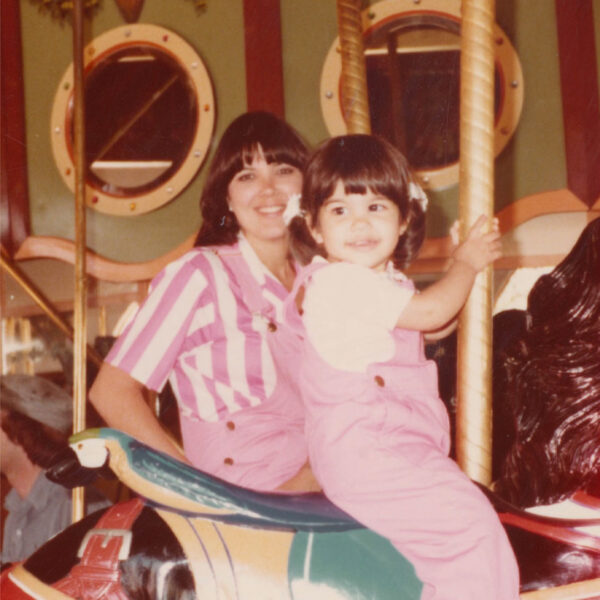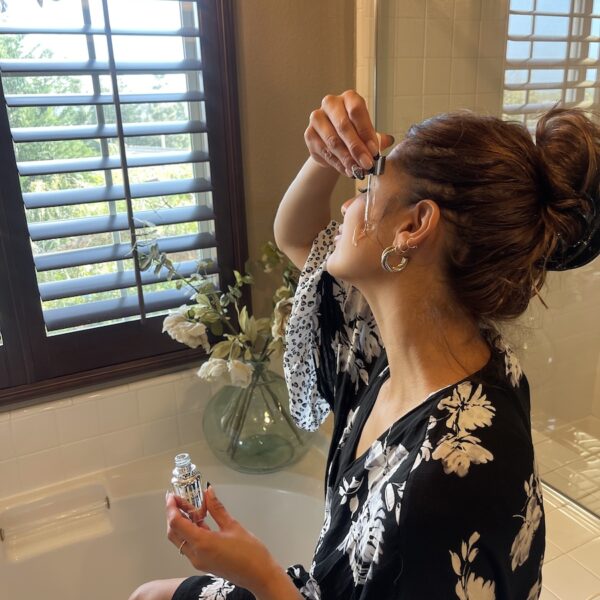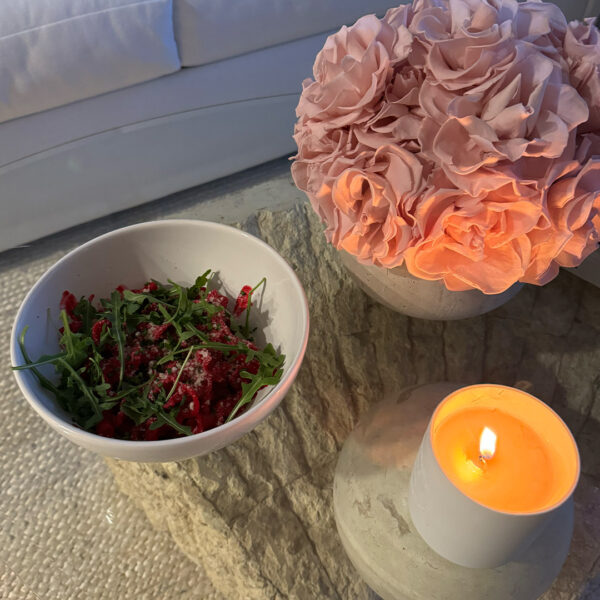You know when you’re arguing with your SO about, say, the dirty dishes in the sink … and then suddenly, you find yourself spouting a whole dissertation on all the (perceived) slights that have ever been made in the relationship to prove your point?
Or, you know, something less specific. But you get the gist. Handling conflict in a healthy way is hard sometimes.
“When you’re upset, it’s hard to stay grounded, but it’s so important you do your best to fight in a way that can move you and the other person forward, not backward,” says licensed marriage and family therapist Vienna Pharaon, national best-selling author of The Origins of You. “Conflict is an opportunity to bring you closer to one another. It’s an opportunity to create deeper connection, understanding, and intimacy if you can sidestep the same old patterns that leave you disconnected and in pain.”
Since this can be easier said than done, we asked Vienna to share some tips for fighting fair in an argument.
Recognizing behaviors is a good place to start. According to Vienna, when people don’t fight fair—intentionally or unintentionally—it often looks like:
- They go on the attack.
- They focus on proving their point.
- They get into a power struggle with each other.
- They try to win the argument.
- They use absolutes.
“On the other hand, fighting fairly means that you honor and share your experience while also trying to hold space for theirs,” Vienna explains. “It means you focus on yourself and your part instead of pointing out all the things the other person did wrong. It means you’re aware of how this moment feels similar to historical moments in your life, and you share that from a vulnerable place instead of just going off on the other person.
“At the end of the day, constructive conflict leads you to a place where you learn something about yourself and the other person.”
So how do we go about doing that? Vienna shares five tips:
1. Talk about conflict when you’re not actually in conflict.
When you’re in it, it’s very hard to change things when you haven’t talked about them or made a plan for yourself or the relationship. What are the dos and don’ts? What’s off limits? What commitments do you want to make for yourself?
2. Name where things tend to start to fall apart with one another.
Where do the wheels fall off? Acknowledge what you do that is disconnective. What is it that makes you feel defensive, makes you want to shut down, makes you want to win? Are there things you can notice and share with your partner?
3. Explore together what feels familiar about your conflict.
Does it remind you of the conflict in your home when you grew up? Past partners? What about it feels similar? Can you share this with one another?
4. Understand what you do to try to protect yourself in conflict.
This perspective can often offer compassion for yourself and for the other person. Do you shut down as a way of protecting yourself? Do you need to be right because being wrong in your family meant you were ridiculed or criticized? Do you over explain and defend yourself because hearing that you hurt someone or let them down creates intense shame? Connect with this and share this with your partner.
5. Look for moments in conflict where you can disrupt the pattern.
Focus on ways you can replace disconnection with connection. Be willing to hit the reset button. Be willing to ask for a re-do.”
Vienna says, “Conflict often becomes a race to being right, proving your point, or defending your position. This is a losing battle. The goal should be racing to hear the other person, racing to understand their experience without invalidating your own. It’s not an easy shift, but a powerful one. How quickly can I hear you? How quickly can I acknowledge you? How quickly can I see your pain? Imagine what could shift then?”
Vienna Pharaon is the founder of Mindful Marriage and Family Therapy and is one of the most sought-after licensed therapists in New York City. She has a way of leading people back home, connecting deeply to their needs, and helping people connect to their voice in order to create the change they wish to see in themselves and their relationships. She is the relationship expert for Motherly, has over 400K followers on Instagram, and has been featured in The Economist, Fatherly, The New York Post, and Vogue.
Shop our relationships collection:
Up next, be the first to know our weekly content and sign up for our Poosh newsletter.







































